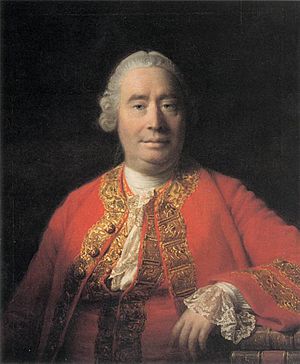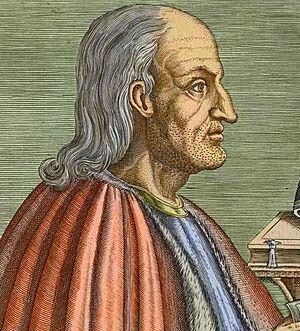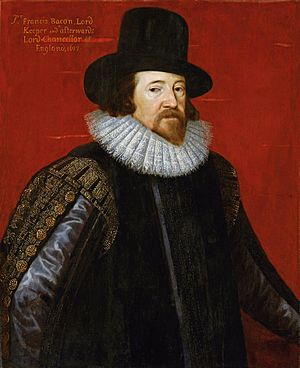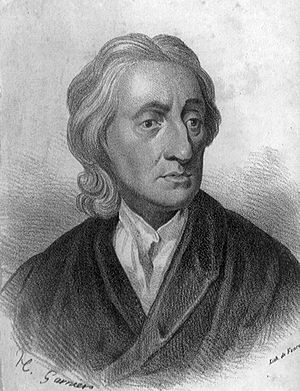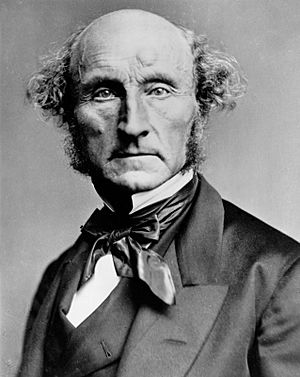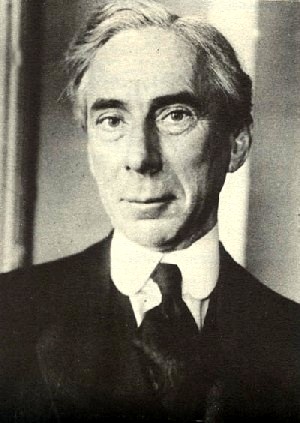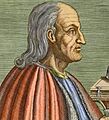British philosophy facts for kids
British philosophy is the way people from Britain have thought about big questions. It's known for being practical, clear, and focused on real-world ideas rather than complicated theories. British thinkers often prefer simple, honest ways of looking at things.
Contents
Medieval Thinkers
This section looks at some important British philosophers from the Middle Ages.
Anselm of Canterbury: A Deep Thinker
Saint Anselm of Canterbury (around 1033 – 1109) was a very important philosopher and church leader. He was the Archbishop of Canterbury from 1093 to 1109. Anselm is famous for his ideas about God's existence and how people can be forgiven. His writings are seen as both philosophical and religious because he tried to explain Christian beliefs using logic and reason.
William of Sherwood: Logic Master
William of Sherwood (around 1200–1272) was an English philosopher and teacher during the Middle Ages. Not much is known about his life, but he likely studied in Paris and taught at Oxford around 1252. He wrote two important books on logic: Introduction to Logic and Syncategoremata. These books were among the first to systematically discuss "supposition theory," which helped shape how logic developed in England and Europe. Another famous thinker, Roger Bacon, thought Sherwood was "much wiser" than many others.
Roger Bacon: The "Wondrous Doctor"
Roger Bacon (around 1214–1294) was an English philosopher and friar. He was called "Doctor Mirabilis," meaning "Wondrous Doctor." Bacon strongly believed in using experiments and observation to learn about the world. He is sometimes seen as one of the first Europeans to support the modern scientific method. He was inspired by ancient Greek thinkers like Plato and Aristotle, and also by early Islamic scientists.
Duns Scotus: The "Subtle Doctor"
John Duns Scotus (around 1265 – 1308) was a very important philosopher and church thinker from Scotland. He was born in Duns, Scotland, and became a priest in England. He taught in famous universities like Cambridge, Oxford, and Paris. Scotus died in Cologne, Germany, and was later honored by the Pope. He was nicknamed Doctor Subtilis (the "subtle doctor") because of his deep and detailed ideas. He is known for concepts like "univocity of being" (that existence is a basic idea for everything) and "haecceity" (the unique qualities that make something exactly what it is).
William of Ockham: The Razor's Edge
William of Ockham (around 1288 – 1348) was an English friar and philosopher. He is most famous for his principle called Occam's razor. This idea suggests that when you have several possible explanations for something, the simplest one is usually the best. It means you should avoid making unnecessary assumptions. While he didn't use the exact phrase "Occam's razor," his writings expressed this idea, saying things like "plurality must never be posited without necessity." This principle helps us choose between different ideas by "shaving away" extra parts that aren't needed.
Modern Thinkers
This section explores British philosophers who shaped modern thought.
Francis Bacon: Father of Empiricism
Francis Bacon (1561–1626) was an English statesman, scientist, lawyer, and writer, as well as a philosopher. He is known for his work on the scientific method. Bacon is often called the "father of empiricism," which is the idea that knowledge comes from experience and observation. His work helped establish and popularize ways of doing scientific research, often called the "Baconian method." He believed that science should follow a planned procedure to investigate everything in nature. His ideas greatly influenced how we think about scientific methods today.
Thomas Hobbes: Ideas on Government
Thomas Hobbes (1588–1679) was an English philosopher famous for his ideas on how governments should work. His 1651 book, Leviathan, laid down many basic ideas for Western political philosophy. He believed that people agree to give up some freedoms to a strong ruler for safety and order. Hobbes also contributed to ideas about individual rights, the natural equality of all people, and the idea that government power should come from the people's agreement. He also wrote about history, geometry, and ethics.
The Classic Trio of British Empiricists
The three most famous British empiricists from the early modern period were John Locke, George Berkeley, and David Hume. "British empiricism" refers to this way of thinking in Britain, which believes that most knowledge comes from experience. Even though Berkeley was Irish, he was considered "British" at the time because his home county was part of the United Kingdom.
John Locke: Experience and Ideas
John Locke (1632–1704) was an empiricist who believed that all our knowledge comes from experience. He thought that we are not born with any "innate ideas" already in our minds. Instead, our minds are like a blank slate, and we learn everything through our senses. He explained that we get "simple ideas" directly from our senses, like the color red or the feeling of heat. Then, our minds combine these simple ideas into "complex ideas." Locke also had important ideas about personal identity, suggesting that what makes us the same person over time is our memories and psychological connections, not just our body or soul.
George Berkeley: To Be Is To Be Perceived
George Berkeley (1685–1753) was an Irish philosopher and a church leader. He was a British empiricist and an idealist, meaning he believed that reality is made of ideas. His main ideas were in his book A Treatise Concerning the Principles of Human Knowledge. Berkeley agreed with Locke that ideas exist in our minds. However, he went further, arguing that the outside world itself is also made of ideas. He believed that physical objects don't exist independently of our minds. His famous saying was "esse est percipi aut percipere" which means "to exist is to be perceived, or to perceive." This means that things only exist if they are seen or thought about by a mind. Berkeley believed that God's mind keeps the world consistent and logical.
David Hume: Questioning What We Know
David Hume (1711–1776) was a Scottish philosopher, economist, and historian. His important books include A Treatise of Human Nature and An Enquiry concerning Human Understanding. His ideas about free will, cause and effect, and what makes us who we are still debated today. Hume famously discussed the problem of induction. This is the idea that we can't logically prove that what happened in the past will happen again in the future. For example, just because the sun has risen every day so far, we can't logically prove it will rise tomorrow. He also questioned our idea of causation. He argued that we never actually see a "necessary connection" between a cause and an effect. We only see one event consistently following another. Hume also thought that there isn't a fixed "self" that stays the same over time. Instead, he saw us as a "bundle of perceptions" that are constantly changing.
Adam Smith: Father of Modern Economics
Adam Smith (1723–1790) was a Scottish moral philosopher and a pioneer in economics. He wrote The Theory of Moral Sentiments and his most famous work, The Wealth of Nations. This book is considered the first modern work on economics and led to Smith being called the "father of modern economics." Smith studied philosophy at the University of Glasgow and Oxford. He worked with David Hume during the Scottish Enlightenment, a time of great intellectual growth.
19th Century Thinkers
Jeremy Bentham: The Greatest Happiness
Jeremy Bentham (1748–1832) started the idea of utilitarianism in Britain. Utilitarianism is a moral theory that says an action is right if it creates the greatest happiness or pleasure for the greatest number of people. Bentham believed that pleasure is the only good thing and pain is the only bad thing. He even suggested a "felicific calculus" to measure how much pleasure or pain an action would cause, using units he called "hedons" and "dolors."
John Stuart Mill: Freedom and Happiness
John Stuart Mill (1806–1873) was an important thinker in social and political theory. His ideas about liberty defended the freedom of individuals against too much government control. Mill also continued Bentham's work on utilitarianism. His book Utilitarianism explains and defends this idea, arguing for the "greatest happiness principle."
Henry Sidgwick: Refining Utilitarianism
Henry Sidgwick (1838–1900) also focused on utilitarian ethics. He was involved in promoting higher education for women. His book The Methods of Ethics, first published in 1874, is seen as a high point of classical utilitarianism. Many philosophers consider it one of the best books ever written on ethics.
British Idealism: A Different View
British idealism was a philosophical movement that was popular in Britain from the mid-1800s to the early 1900s. It was a form of "absolute idealism," which suggests that reality is fundamentally mental or spiritual. Some important thinkers in this movement included T. H. Green and F. H. Bradley. Later, two famous British philosophers, G. E. Moore and Bertrand Russell, grew up with these ideas but then created a new way of thinking called analytic philosophy in reaction to it.
20th Century and Beyond
Analytic Philosophy: Logic and Language
Analytic philosophy became the main way of thinking in the English-speaking world from the early 1900s. It built on traditional British empiricism but also used new developments in logic.
G. E. Moore: Common Sense Philosophy
George Edward Moore (1873–1958) was an English philosopher and one of the founders of analytic philosophy. He helped lead a "revolt against idealism" in Britain, along with Bertrand Russell. Moore is known for defending ethical non-naturalism (ideas about good and bad that aren't based on natural facts) and for emphasizing common sense in philosophy. He was admired by other philosophers for his clear and careful writing style. His famous works include Principia Ethica and essays like "A Defence of Common Sense".
Bertrand Russell: Logic and Peace
Bertrand Russell (1872–1970) was a very important figure in British philosophy. He helped start the "revolt against idealism" with G. E. Moore. Russell was a mentor to Ludwig Wittgenstein and is considered one of the most important logicians of the 20th century. He wrote Principia Mathematica with Alfred North Whitehead, trying to show that all mathematical truths could be based on a few basic rules of logic. His essay "On Denoting" was also very influential in the philosophy of language. Russell was also a strong advocate for peace and human rights. He spoke out against war and worked for nuclear disarmament. In 1950, he won the Nobel Prize in Literature for his writings that supported humanitarian ideals and freedom of thought.
A. J. Ayer: Logical Positivism
Sir Alfred Jules Ayer (1910–1989), often called A. J. Ayer, was a British analytic philosopher. He was known for promoting logical positivism, which is a philosophy that says statements are only meaningful if they can be proven true or false through observation or logic. His most famous books are Language, Truth and Logic (1936) and The Problem of Knowledge (1956).
Ordinary Language Philosophy: Words Matter
Ordinary language philosophy is a school of thought that believes many traditional philosophical problems come from misunderstanding how words are used in everyday life. This approach focuses on carefully looking at the details of everyday language rather than creating grand theories. It was mainly associated with professors at the University of Oxford in the mid-20th century, especially J. L. Austin, Gilbert Ryle, and P.F. Strawson. It was a major philosophical school between 1930 and 1970.
Contemporary British Philosophy
In recent times, British philosophers have continued to contribute to many areas. Some important figures in the philosophy of religion include Antony Flew, C. S. Lewis, and John Hick. In moral and political philosophy, key thinkers have been R. M. Hare, Alasdair MacIntyre, and Roger Scruton. Other recent British analytic philosophers like David Wiggins, Derek Parfit, and P. F. Strawson have focused on topics such as metaphysics (the nature of reality), philosophy of mind, logic, and the philosophy of language.
Images for kids
See also
- List of British philosophers
- British Philosophical Association
- The Philosophical Society of England
 | Ernest Everett Just |
 | Mary Jackson |
 | Emmett Chappelle |
 | Marie Maynard Daly |


